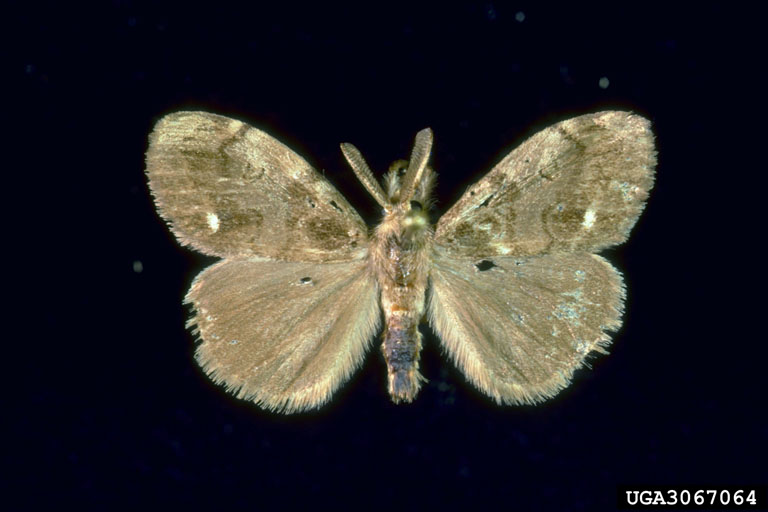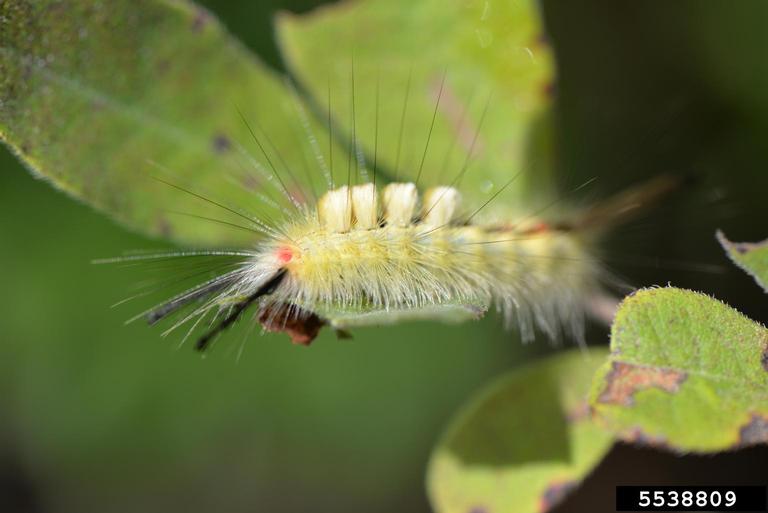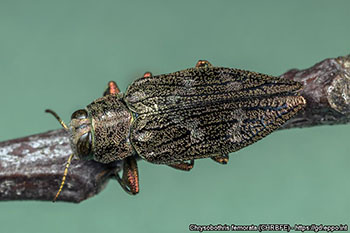
25th Meeting of Panel on Quarantine Pests for Forestry
Teleconference, 2020-03-23/24
The EPPO Panel on Quarantine Pests for Forestry met by teleconference. Only selected points of the agenda prepared for the original meeting (before it needed to be changed to a teleconference) were considered. The team from the German NPPO which originally offered to host the meeting was thanked for their efforts.
Situations in EPPO countries in forest quarantine and protection were considered in detail and it was noted that many indigenous pests have become invasive and very damaging probably due to weather and climatic events.

Dendroctonus valens – Steven Valley, Oregon Department of Agriculture, Bugwood.org

Orgyia leucostigma – James Solomon
USDA Forest Service, Bugwood.org

Orgyia leucostigma – Karan A. Rawlins, University of Georgia, Bugwood.org

Chrysobothris femorata
Eduard Jendek
The new version of draft PM 3 Standard on Sentinel woody plants was discussed after the revision by the Expert Working Group in January 2020. The Panel went through the new draft Standard making comments, corrections and amendments, and agreeing on terminology. The Panel appreciated that the new draft focuses on the importance of the sentinel plant concept for NPPOs and classifies different types of sentinel plants according to their purpose: sentinel arboreta and sentinel plantations for early warning about pest risks, and sentinel nurseries for obtaining information for commodity risk assessment. The Panel also appreciated that it is clear now what is in scope of the Standard and what is out of scope. It was mentioned that the main focus of the concept is on the pest risks associated with international trade of woody plants and plant products. The Panel considered that this new version is ready for country consultation if the section on diagnostics is shortened and revised.
The Panel considered pests of forestry concern in the updated EPPO Alert List and provided recommendations on them. The Panel did not recommend any deletions from the Alert List. The Panel selected 5 pests as good candidates for PRA: Chrysobothris femorata, Dendroctonus valens, Neodiprion abietis, Neonectria neomacrospora and Raffaelea lauricola. The Panel recommended conducting PRA for Dendroctonus valens and Raffaelea lauricola as a priority. The Panel recommended inclusion of Lambdina fiscellaria, Chionaspis pinifoliae and Orgyia leucostigma into the EPPO Alert List. The latter species was added to the Alert List in March 2020.
Panel members shared information on the use of biological control agents against forest pests in their countries. They also discussed the organisation of the EPPO Workshop on implementation of ISPM 15 (postponed to the Autumn). Three Panel members volunteered to be part of the Organising Committee of the Workshop. The Panel also decided to investigate the need to develop an EPPO Standard on inspection of wood (round and sawn), which was proposed by the EPPO Panel on Phytosanitary Inspections. Panel members were asked to study the existing EPPO Standard PM 9/14 ‘Agrilus planipennis: procedures for official control’ and to inform the EPPO Secretariat if they consider the Standard should be revised and, if yes, provide details on the revision needed.
